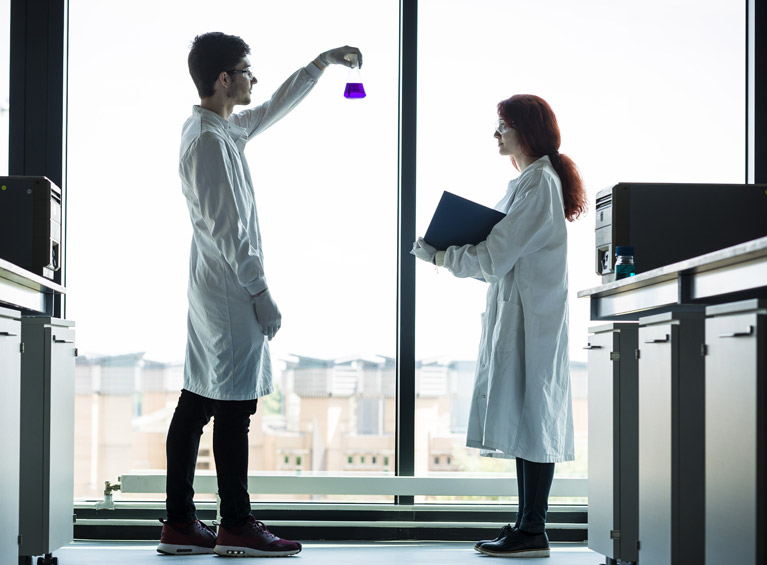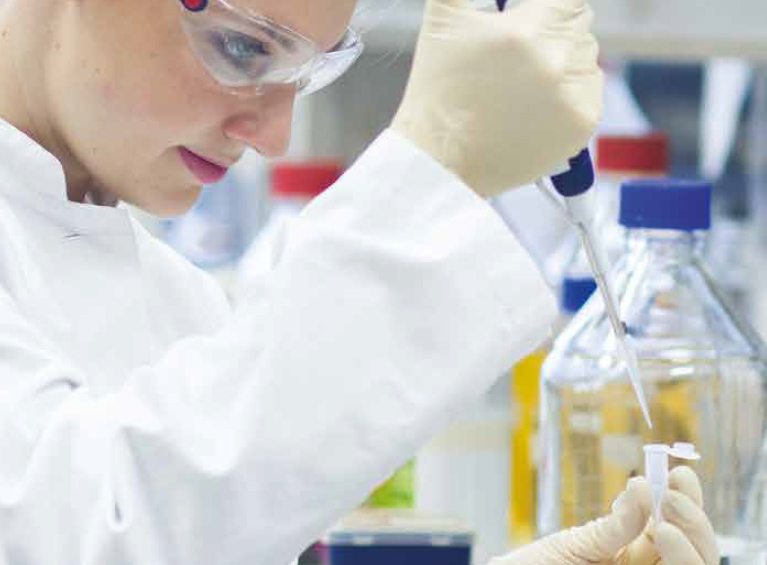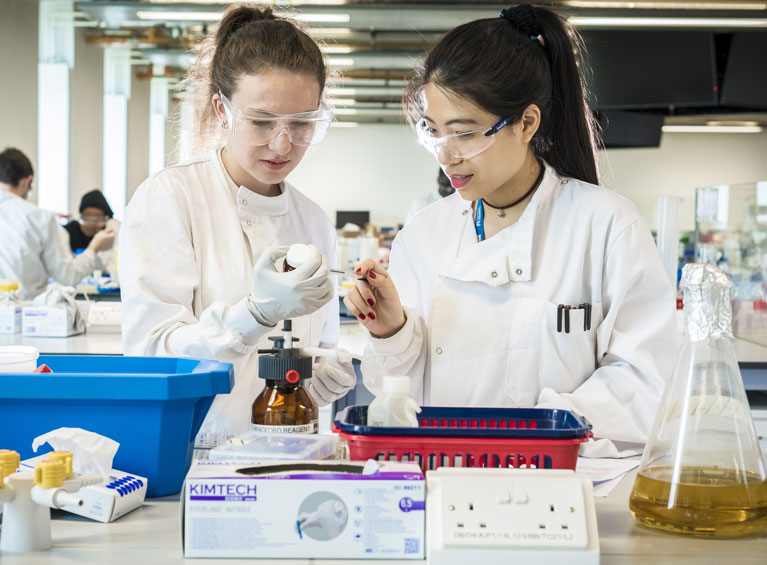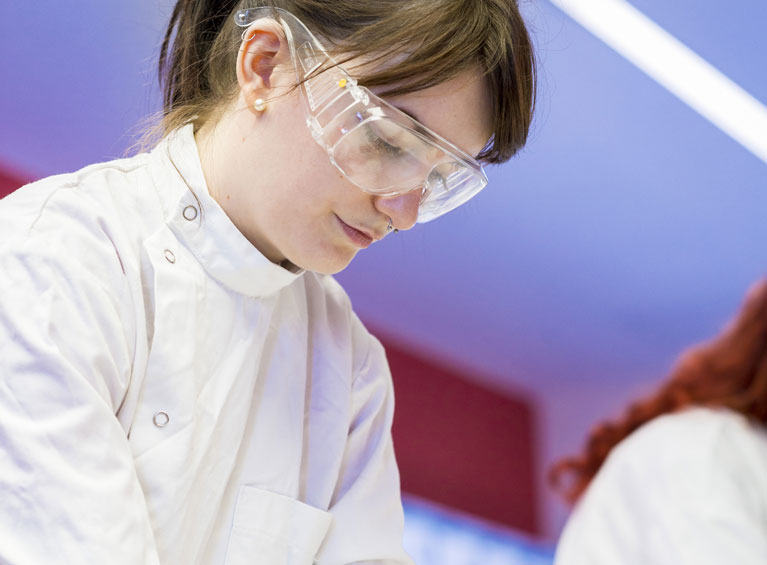Research laboratories simulation

Students have the opportunity to develop their skills in the newly developed Alison Gingell Building, using the equipment that they can expect to work with on placement or in their chosen careers.
From Lab+ and bio-analysis to DNA analysis and genomics and more - our new Alison Gingell Building features a range of research labs.

Lab+
Our Lab+ can accommodate up to 250 students at once making us one of the largest educational laboratory providers in the UK. Our laboratories are well equipped with the latest industry-standard equipment, covering microscopy, cell culture, haematology, DNA analysis, chemical analysis and forensic testing.

Bio-analysis
Our students have the opportunity to use a range of automated analysers and equipment located within our highly advanced laboratory such as horiba haematology and clinical chemistry analysers, coagulation analysers, powerlab bioamplifiers, flow cytometry equipment and more.
Learn
how genomics and DNA help us to identify and fight diseases like cancer.

DNA analysis and genomics
Molecular analytical techniques play an important role in human genetics, cancer biology, clinical biochemistry, clinical physiology and medical microbiology.
DNA sequencing is a tool used by these sectors and we use modern equipment to sequence DNA and profile genomic fingerprints.

Analytical techniques
Our Analytical Chemistry suite is where our students apply their practical and theoretical knowledge to real life working scenarios.
We use a new generation chromatography technique, to analyse products ranging from pharmaceutical agents, to cosmetics, drinks and toxins.
Measuring
the heart muscles, breathing and body fat, to help diagnose obesity and other health conditions.
Inspiring
The Alison Gingell Building will enhance our position as a hub of learning and exploration for Coventry and the region.

Food science facilities
Food sciences students gain hands-on experience on a wide range of techniques, such as sample extraction, purification and analysis. We also have a range of specialist facilities including analytical equipment and kitchen facilities for nutritional testing and tasting sessions.
I was attracted by the variety of modules; the subjects included cellular biology, biochemistry, complete anatomy and physiology. This course has prepared me with the knowledge to pursue many options, either medicine, an academic career, medical research or industry.
Alexandra Burdujan BSc Medical and Pharmacological Sciences, (Graduate)




